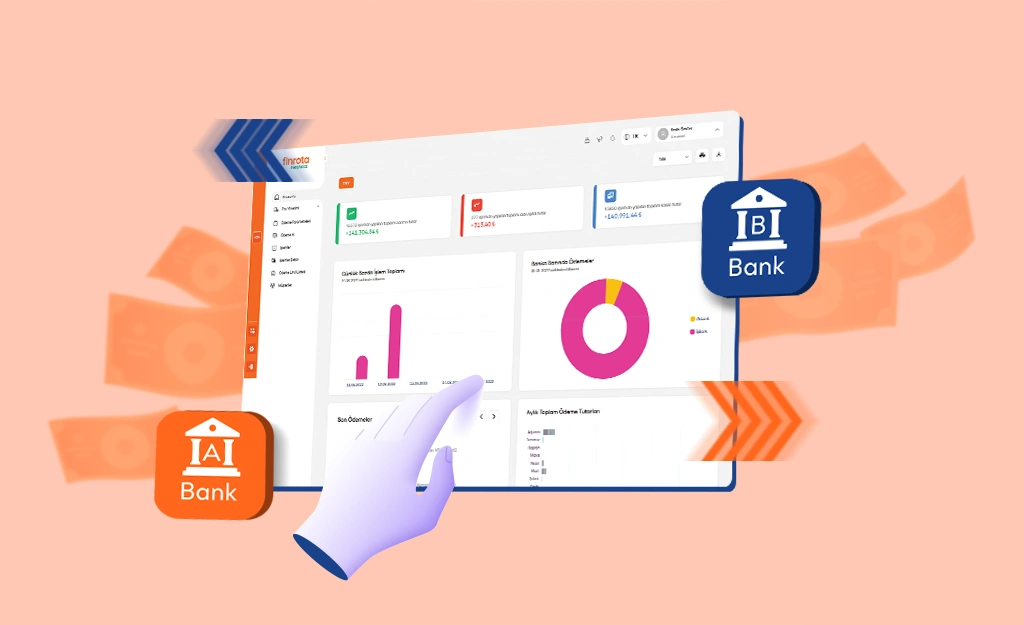Every business and entrepreneur wants to optimize their tax burden while achieving their growth goals. “Tax Exemption” offers a strategic advantage at this point. Legally defined exemption rights accelerate your cash flow, reduce your costs and strengthen your competitiveness in a wide range from tradesmen to e-commerce, from young entrepreneurs to non-profit organizations. In this guide, we will take you step by step through what a tax exemption is, who can benefit from it and under what conditions, how to obtain an exemption certificate, and the tangible benefits these rights will bring you. Prepare for the dynamic economy of 2025: Discover the secrets to grow your business while easing your tax burden!
What is a Tax Exemption?
A tax exemption is an important financial advantage for businesses and individuals that allows them to be partially or fully exempted from certain tax items if specific criteria set by law are met. These exemptions are usually applied to the main types of taxes such as Income Tax, Value Added Tax (VAT) and Corporate Tax, and allow the amount of tax liability to be reduced or eliminated altogether. These arrangements directly contribute to freeing up financial resources, accelerating cash flow, reducing costs and thus increasing competitiveness in the market.
Tax exemptions are designed as an important component of public finance in the form of an instrument called “tax expenditure”. This concept refers to the state's deliberate waiver of tax revenues in order to achieve certain economic or social objectives. When used correctly and effectively, tax exemptions provide direct positive reflections on the financial performance of businesses.
Types of Tax Exemptions and Legal Basis in Turkey
Tax exemptions in Turkey are regulated by various laws to provide financial flexibility to both businesses and specific groups of individuals. These arrangements cover a wide range of different economic and social needs.
Income Tax Exemption
- Tradesmen (Simple Procedure) Exemption: Pursuant to Article 9/1-6 of the Income Tax Law, simple procedure taxpayers such as hairdressers, grocers, barbers, manufacturing tradesmen whose annual sales revenue is below the determined gross minimum wage are exempt from income tax. This exemption also covers the sale of goods produced at home over the internet. However, those who regularly buy or collect and sell waste from commercial enterprises and those who operate in a way that is dependent on Income and Corporate Taxpayers cannot benefit from this exemption.
- Exemption for Domestic Workers: Pursuant to Article 23/6 of the Income Tax Law, income earned by employees working in domestic services (cleaning, childcare, etc.) is exempt from income tax under certain conditions.
Value Added Tax (VAT) Exemption
- Export and e-Export Exemption: Article 11/1-a of the VAT Law exempts exports and export registered deliveries from VAT. Sales made abroad through e-commerce platforms are also subject to 0% VAT by issuing an “exemption invoice”.
- Investment Equipment Exemption: For investments with investment incentive certificates, VAT payment for machinery and equipment purchases may be exempted within the scope of the certificate. Investors can obtain a VAT refund or exemption by applying to the Revenue Administration (RA) website with their incentive certificate.
Corporate Tax Exemption
- R&D and Innovation Incentives: Pursuant to Law No. 5746 on Supporting Research and Development Activities, expenses incurred in R&D centers can be deducted from the corporate tax base at a reduced amount and stamp tax exemption is also provided. The R&D discount rate can be up to 100%.
- Technopark Fees: According to Law No. 4691 on Technology Development Zones, wages paid by technopark companies to R&D personnel are exempt from income tax. In addition, employers' social security premium support is also covered by the Treasury. However, earnings from activities carried out outside the zone cannot benefit from this exemption.
Other Tax Exemptions
- Property Tax Exemption: According to paragraph (m) of Article 4 of the Real Estate Tax Law No. 1319, buildings located in organized industrial zones (OIZ) and industrial sites are exempt from real estate tax, provided that they are not rented out. In addition, these buildings benefit from temporary exemption for 5 years starting from the budget year following the date of the end of their construction. Within the scope of land tax, TL 10.000 of the total tax value of the taxpayers' land (excluding land plots) located within a municipality and the boundaries of the adjacent area of this municipality is exempt from real estate tax. This amount can be increased up to three times by the Council of Ministers.
- Motor Vehicle Tax (MTV) Exemption: Vehicles purchased by persons with a disability rate of 90% and above are exempt from MTV. The application is made via e-Government or to the affiliated tax office with an electronic signature.
- Special Consumption Tax (SCT) Exemption: Pursuant to Article 7/2 of the SCT Law, the first vehicle purchases of disabled persons are exempted from SCT for once in ten years by disabled persons with a degree of disability of 90% or more. SCT payment is abolished for vehicles with a domestic contribution rate of at least 40%. If the domestic contribution rate is below 40%, this exemption will not apply to the first acquisitions made as of 27.12.2024. This rate may be extended by the President.
The constant updating of the articles of law and communiqués regarding these tax exemptions reveals that tax legislation has a dynamic structure and businesses need to closely follow these changes. In particular, the inability to verify the accuracy of certain information emphasizes the complexity of the legislation and the importance of accessing up-to-date information. While this dynamism offers new opportunities for businesses, it also brings with it compliance risks.
The diversity of exemption types (R&D, e-export, young/women entrepreneurs, persons with disabilities, artisans) reflects the government's strategy to promote economic and social development by targeting specific sectors (technology, exports) and social groups (disadvantaged individuals, small businesses). Each exemption serves a specific policy objective. For example, R&D incentives target innovation and value-added production, while the tradesmen exemption supports the survival of small businesses and their participation in the formal economy.
This content is intended to provide general information on tax exemption and does not constitute legal, financial or tax advice. Since laws, communiqués and directives may change over time, it is of great importance to follow the official sources (Revenue Administration, Official Gazette, relevant legislation) for current practices and interpretation appropriate to the individual situation. It is strongly recommended to seek the opinion of a licensed expert (financial advisor, tax consultant or lawyer) on tax and financial matters.



